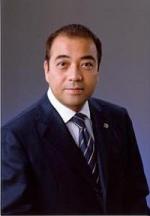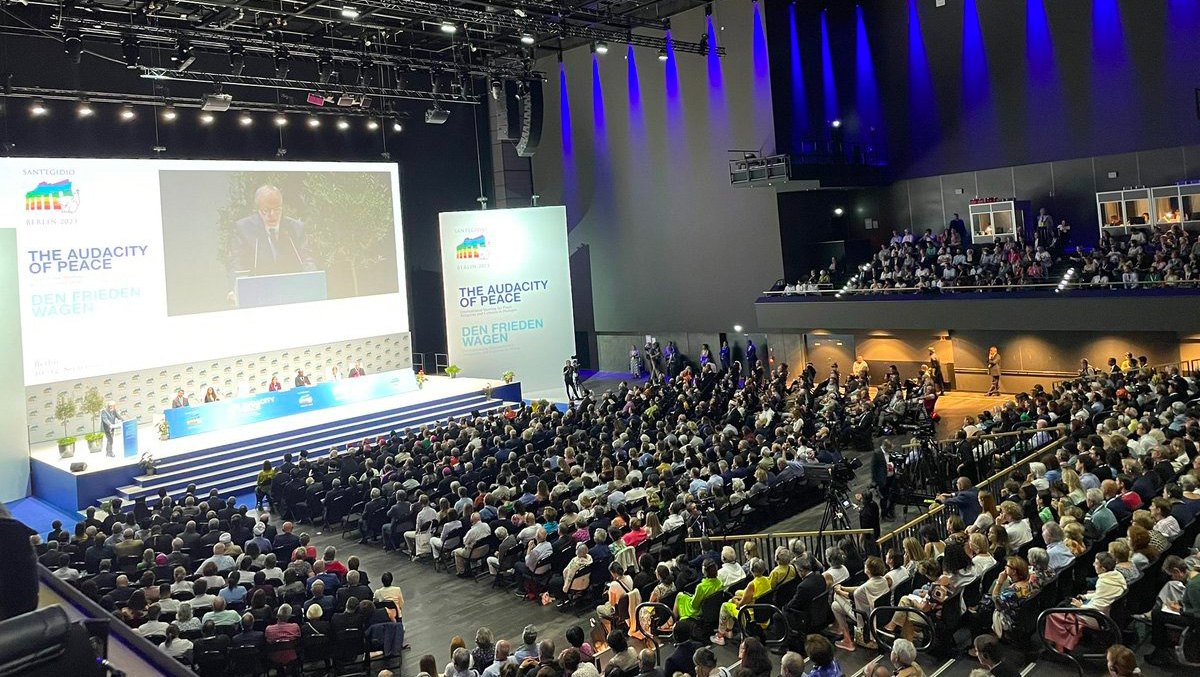
First of all, I would like to thank the Community of Sant’ Egidio for giving me this opportunity to participate in this important event and share my view at this session.
The Covid-19 pandemic, now almost three years in, has finally come somewhat under control and people around the world seem to be resuming their normal lives. Nevertheless, children, who have been among the most vulnerable during the pandemic, still continue to face difficulties such as poverty and violence in an environment that has been worsened by the pandemic. Additionally, emerging global issues, such as climate change, armed conflicts, and food insecurity, loom over the future of the children.
Every child should have the right to choose their own way and future so that they can fulfill their whole human potential with dignity. Yet, children in today’s world have very limited choices as to how to live due to the above-mentioned environment surrounding them. Freedom of choice for children is threatened now.
In particular, the worsening poverty caused by the pandemic has placed children in more difficult conditions across many dimensions, including access to education, food and nutrition, basic housing, water and sanitation and healthcare. According to a report by the World Bank and UNICEF, two-thirds of households with children lost their income during the pandemic and nearly 40 percent of these households were not engaging in educational activities.
Currently, the number of displaced children is over 37 million, the highest since World War II. These millions of children on the move are facing discrimination and even hate speech in their new communities just because they are different in various ways. This kind of negative behavior targeting them, in fact, also derives from a state of lack of choice. Discrimination would not happen in a generous society where people have access to multiple choices.
Professor Amartya Sen, the Indian economist, philosopher and Nobel Prize winner, considered freedom to be “the capability to live one's life as one desires.” He argued that guaranteeing the fundamental rights to education, healthcare and social security is the key to securing freedom of choice for children. If they enjoy these rights, they would in turn have a wider range of choices and be able to explore their future possibilities freely. He proposed that the well-being of children must be considered not only in terms of their present situation, but should also include consideration of their freedom in the future.
Freedom is generally understood as being free from constraints and acting according to one's own will. If a condition where one can make a choice without any constraint is an external dimension of freedom, acting according to one’s own will could be said to be an internal dimension of freedom.
In Buddhism, freedom means relying on one's own will, and the Japanese word for “freedom” carries the same meaning. The Buddha taught a disciple who questioned how he should seek enlightenment after the Buddha passed away that one should not rely on others but on oneself (self-illumination) and that one should follow the true teachings of Dharma as a beacon of light (dharma-illumination). The idea is that freedom is established by oneself based on the teachings of the Buddha.
I am aware that in the Bible there is a passage, "And you shall know the truth, and the truth shall make you free." (John 8:32), and I understand that Christianity refers to freedom from sin, salvation through God's grace, inner freedom, and freedom to love and serve others. Similarly, I understand that Islam teaches that freedom can be achieved by following the will of God, observing Islamic laws, attaining inner freedom and spiritual liberation, and practicing justice and compassion for others.
From these perspectives, freedom is not something given from external sources, but rather signifies an understanding of the truth arising from within oneself and the peace of mind attained from it.
I believe it is the responsibility of people of all faiths to create an environment where every child can enjoy freedom, including this spiritual aspect, an environment where children can choose their own way to go, while adults are ready to respect their decision and support their efforts to find a better future.
The Convention of the Rights of the Child stipulates the basic human rights that children possess. Creating an environment where every child can enjoy these rights is the key to securing freedom of choice for children, and this will lead to a better future for them, as well. The multi-religious global study on the Convention conducted by Arigatou International shows that religious texts and the CRC share a common vision for children, including the family-centered values of both religious and rights-based approaches. It also describes the positive role religious communities should continue to play in the implementation of the Convention.
In the year 2000, my father, the late Rev. Takeyasu Miyamoto, established the Global Network of Religion for Children (GNRC) in order to support religious people and communities to make significant contributions to building a better world for children. It was his conviction, which I have carried with me to this day, that building a world where children can grow up physically, mentally and spiritually sound is the surest way to build a peaceful world in a true sense.
Next year, the 6th global forum of the GNRC is being planned, which will provide an opportunity to mobilize all the efforts of religious communities and other various actors in the international community to shape a better future for children. I sincerely hope that this global forum will also serve as a bold but concrete step toward a peaceful world where not only children but people of all ages around world enjoy freedom both internally and externally.
Thank you for your kind attention.
